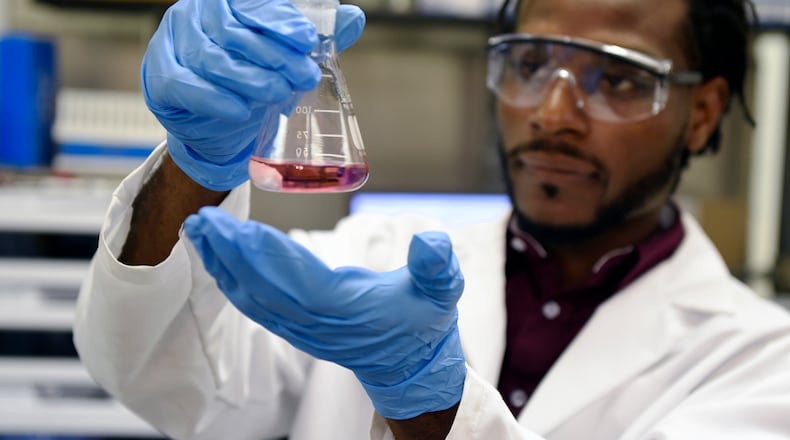Proposal questions are due by Sept. 21, and must be submitted to Lexcie Potter, contracting officer, at lexcie.potter@us.af.mil, and Denise Johnson, contract specialist, at denise.johnson.19@us.af.mil.
The research center will focus on tactical autonomy, or the use of artificial intelligence tools. It will be the 15th university affiliated research center created within the Department of Defense, but the first such center the Air Force has developed from the ground up, advocates said in interviews Monday.
Air Force “leaders recognize the talent pool within HBCUs (historically black colleges and universities) and found there are currently zero R1 HBCUs,” a recent Air Force announcement said.
One goal is to boost the research capacity of historically black colleges and universities and help them transition to an “R1″ rating or classification.
An R2 rating is “high research activity” while an R1 rating is “very high research activity,” the Air Force said.
“This is an opportunity for us to be able to shine a light,” Tim Williams, who manages the UARC program and works in the Air Force Concepts, Development & Management office, said in an interview.
“The [Department of the Air Force] has never historically had a UARC,” said Marcus Smith, Air Force Research Laboratory’s (AFRL) diversity, equity, inclusion and accessibility officer. “Additionally, there’s never been a UARC with a HBCU.”
Smith said Monday that AFRL has sought relationships with HBCUs in general. One program, the Minority Leaders Research Collaboration Program, has supported more than 750 students and 200 faculty members from 37 academic institutions since 2005, he said.
“We want to ensure that we have diversity of thought,” Smith said. “Additionally, when we establish these partnerships and collaboration, not only is it a two-way street in terms of doing DOD/Department of the Air Force research ... it also can turn into a recruitment pipeline of sorts.”
The subject matter to be explored will be AI or any tool that can give planes or systems a level of independence, from vehicles to cost-management and predictive maintenance programs.
“We’re talking about the breadth of autonomous systems — it can be anything from air vehicles that are autonomous; it can be even business processes that are autonomous,” said Juan Vasquez, product development director on AFRL’s Autonomy Capability Team 3.
Partnerships with university academics can be quite effective, Vasquez said. “Trust me, I know, I used to be one,” he added. “The technology can advance, but it won’t necessarily go where we want it to go from the Air Force perspective.”
The solution lies in “strong ties” between universities and the Air Force “to help ensure the information goes somewhere useful for the Air Force,” he said.
About the Author

